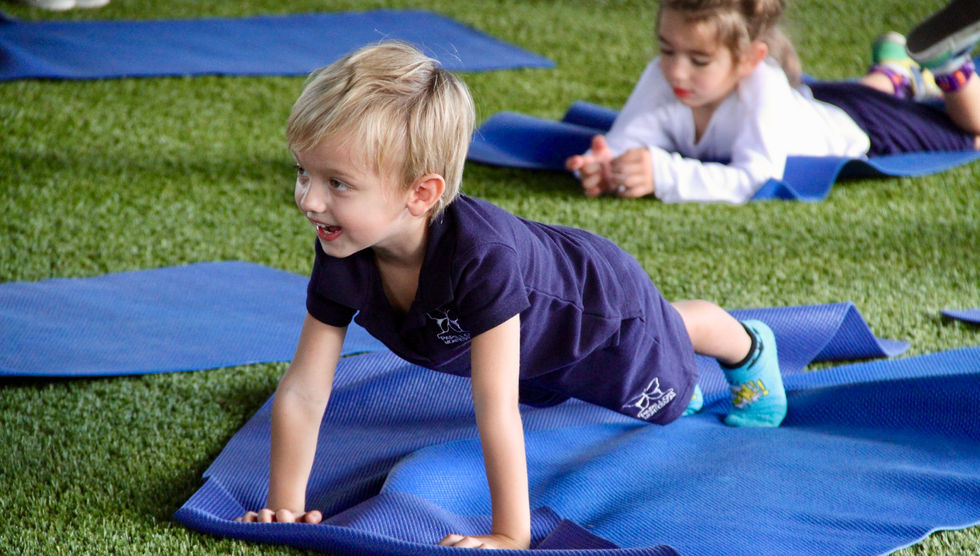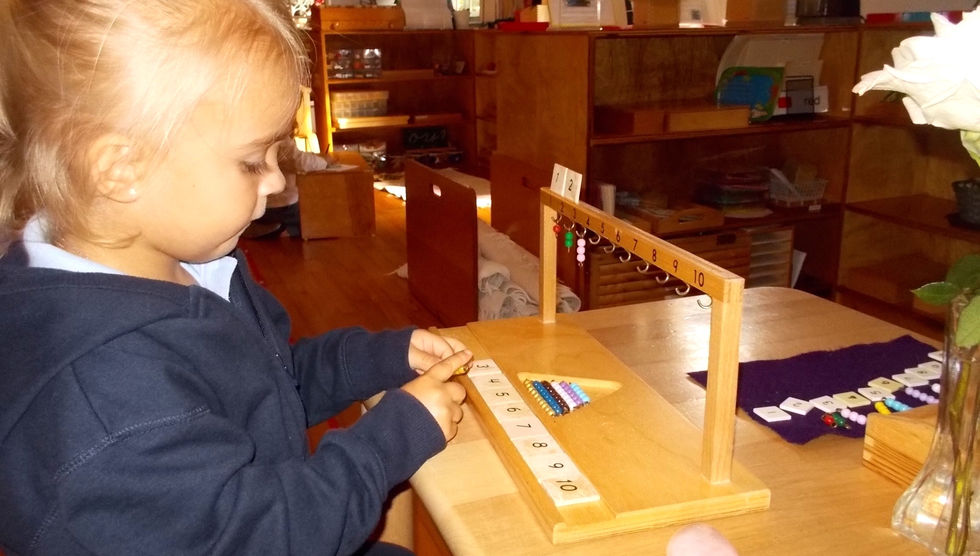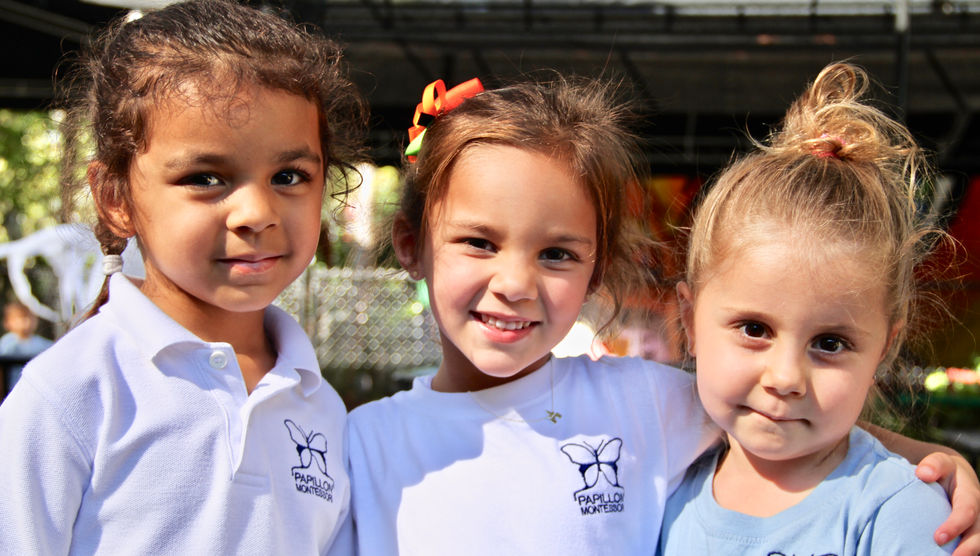PRE-K PROGRAM
3 years old to 4 years old
The Papillon Montessori Approach to Early Childhood Education
Our Primary Program is based on the philosophy of Dr. Montessori, who believed that the purpose of early childhood education is not to fill children with facts but rather to cultivate their inherent desire to learn. At Papillon Montessori, we strive to achieve this goal through two essential methods:
-
Firstly, by empowering each child to experience the joy of learning through their own choices rather than being forced to learn.
-
Secondly, by assisting each child in perfecting their natural learning tools, thereby enhancing their ability to acquire knowledge in future learning situations.
During their formative early years, children can acquire an unlimited amount of knowledge. The environment at Papillon Montessori fosters a strong academic and social foundation for future learning. Children are taught to better comprehend the world around them, develop a positive self-image, and value all life.
THE SPECIFIC GOALS OF THE PRE-K PROGRAM
-
We believe that young children learn best through their interactions with their environment by exploring, experimenting, touching, building, and doing things by and for themselves.
-
Our preschool and kindergarten curriculum is designed to be developmentally responsive.
-
Our classrooms are purposefully prepared environments with stimulating materials and child-sized furniture and equipment.
-
All learning is hands-on and experiential, with specially designed Montessori materials for math, language, sensorial exploration, practical life activities, art, science, and geography.
-
We encourage students to explore, make discoveries, and use their imagination.
-
At Papillon Montessori, the process is more important than the product.
-
Classroom activities prepare the children for subsequent or concurrent work in mathematics, reading, writing, collaboration, and socialization
-
Through Montessori work, children develop strong observational and problem-solving skills.
-
The use of hands-on materials allows children to begin to move from concrete concepts to abstract through manipulation, experimentation, and invention.
-
Students who master the Children's House preschool and kindergarten curriculum are extremely well prepared for the academic, physical, and social work of the first grade.
-
Independence is a key element of the Montessori philosophy in preschool, kindergarten, and beyond.
-
In the Montessori classroom, students choose activities from the environment and work at their own pace alone or in small or large groups.
-
Teachers guide students so they can explore and come up with solutions on their own rather than relying on the teachers to supply the answers.
-
Our comprehensive preschool and kindergarten curriculum provides a solid foundation for elementary school.
-
Making choices and using coordinated movements to accomplish tasks leads the preschool and kindergarten child toward self-regulation and self-control.
-
Through their Montessori work, children develop strong observational and problem-solving skills.
-
Students who master the Children's House preschool and kindergarten curriculum are extremely well prepared for the academic, physical, and social work of the first grade.
“The most important period of life is not the age of university studies, but the first one, the period from birth to the age of six. For that is the time when man’s intelligence itself, his greatest implement, is being formed. But not only his intelligence; the full totality of his psychic powers.”
DR. MARIA MONTESSORI
CHILDREN'S HOUSE CURRICULUM OVERVIEW
Young children take in a tremendous amount of information from their environment, with what Dr. Maria Montessori called "the absorbent mind." Our Children's House preschool and kindergarten program provide an enriching, hands-on learning experience with specially formulated Montessori materials for math, language, sensorial exploration, practical life activities, art, science, and geography. Making choices and using coordinated movements to accomplish tasks leads the child toward self-regulation and self-control. Children develop observation and problem-solving skills. By manipulating, experimenting, and discovering, children move from the concrete to the abstract as they prepare for the more complex studies of the Papillon Montessori elementary program.
DEFINING THE 3-6-YEAR-OLD CHILD
During the three to six-year-old period, children make great developmental strides and show an enormous interest in the world around them. They are eager to learn, explore, and exert their ever-growing independence. The children learn through their interactions with their environment by exploring, experimenting, touching, building, and doing things by and for themselves.
SOCIAL AND LANGUAGE DEVELOPMENT
While many preschool children at this developmental stage still prefer parallel play, they are all beginning to learn to socialize, understand feelings, and manage to work and play in a group. They are fascinated by language and the names of things and communicate by adding new words by the thousands.
CHILD DEVELOPMENT: The Preschool and Kindergarten Child
Dr. Montessori referred to this stage as the period of the Absorbent Mind. She observed that children under six absorb information without effort through everyday interactions with those around them and their environment. This necessary time of development provides the critical foundation for a child's character, learning, and growth.
As in all stages of child development, Dr. Montessori noted specific sensitive periods during this stage, such as when a child is powerfully motivated, driven, and able to learn particular things. These sensitive periods include aspects of movement, reading, mathematics, order, music, grace, and courtesy, among many others. The classroom environment is designed to allow the children to work and learn freely, following their interests and natural tendencies.
PAPILLON MONTESSORI'S DEVELOPMENTAL APPROACH
At Papillon Montessori, all of our programs are developmentally responsive to the needs of individual children. Our classrooms are beautiful environments uniquely prepared to welcome and engage young children in preschool and kindergarten. Children work independently, in small groups with teachers, and with younger and older peers. Our experienced teachers fill the Montessori environment with learning, exploration, and socialization opportunities.

























